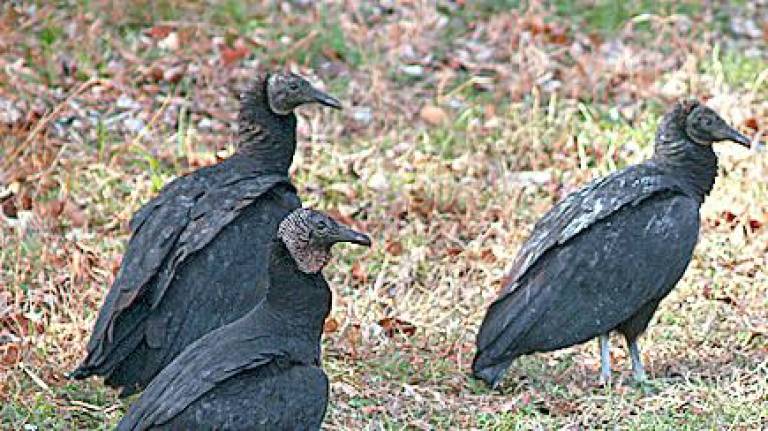Vulture deaths on Sussex Branch Trail caused by avian flu
LAFAYETTE. Roughly 100 vulture deaths have been found along the trail.

If you are walking along the Sussex Branch Trail in the Lafayette area, take note: a section of the trail is reportedly littered with the bodies of black vultures, and there are currently no plans to remove them.
Area residents have reported seeing bodies of the vultures along the trail, just a quarter mile in from the connection at Lafayette Village (The Shoppes at Lafayette). One eye witness saw the dead bodies being eaten by other vultures nearby.
The NJ Department of Environmental Protection confirmed the case as being the result of an avian flu outbreak in the area.
In a statement to the Advertiser, a spokesperson said, “The DEP is aware of about 100 black-headed vulture deaths that occurred around the beginning of this month off the Sussex Branch Trail near Lafayette. The New Jersey Fish and Wildlife has confirmed that the deaths resulted from highly pathogenic avian influenza (bird flu.) The birds, already in an extreme state of decomposition, have been left to decompose on site due to rough terrain causing accessibility issues and a lack of personnel in the state certified to handle infected birds.”
“The outbreak is currently isolated to this specific roost of vultures. No other birds have been infected.”
The DEP noted that the risk to humans is extremely low, as avian flu mostly affects poultry and certain other bird species.
The Sussex Branch Trail is about 20 miles long and runs from Branchville down through Allamuchy State Park in Byram. Only the section around Lafayette has been cited by the DEP has having avian flu-ridden vulture carcasses.
Avian flu spreads from bird to bird, through manure, contaminated vehicles, equipment, egg flats and poultry transport crates. The virus can be transported through bird droppings on clothes or boots into poultry houses and bird pens. If you have been walking in a suspected avian flu contamination area, be sure to wash your shoes or clothing accordingly, if you have birds of your own. And if you have a home flock, keep it away from wild fowl, including shared bodies of water.
Signs of avian flu in poultry include a sudden increase of bird deaths; sneezing or gasping for air; nasal discharge; watery or green diarrhea; lack of energy/appetite; drop in egg production or thin-shelled/misshapen eggs; swelling around the eyes, neck and head; and purple discoloration of the wattles, combs and legs.
If you spot a dead bird whose cause of death appears unknown, or sick wild birds, do not touch them; call USDA Wildlife Services at 908-735-5654, or the NJ Department of Agriculture at 609-671-6400, or email state.veterinarian@ag.nj.gov.
For more information on avian flu, visit bit.ly/3R1jWk0.